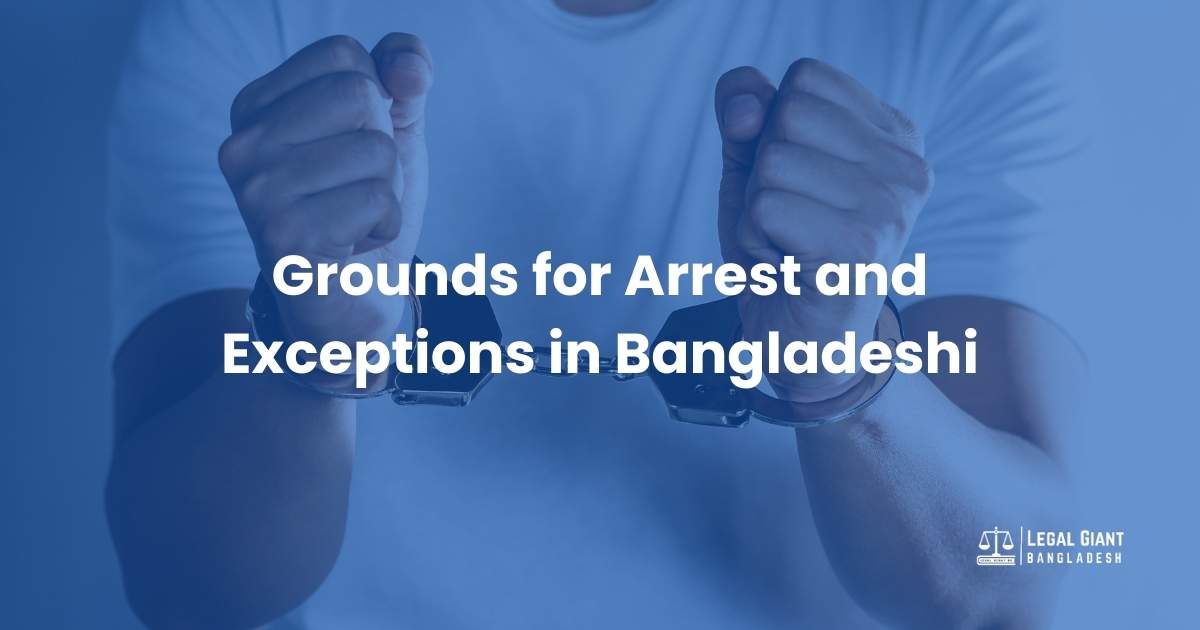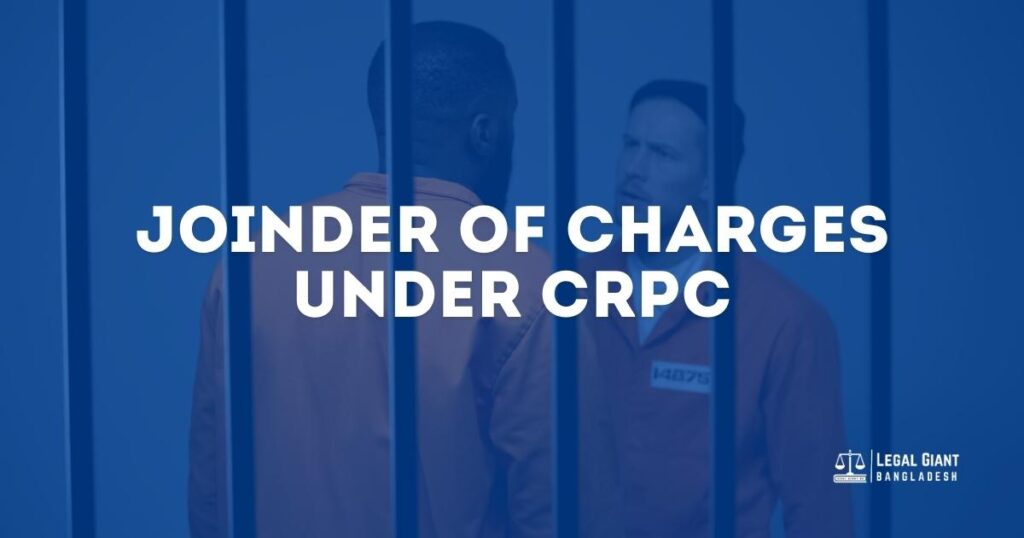Arrest is a fundamental component of the criminal justice system, serving as a mechanism to uphold law and order. However, arbitrary or unlawful arrests can lead to human rights violations. This article explains the grounds for arrest under Bangladeshi law, the exceptions to these rules, and significant cases that highlight their application.

Legal Grounds for Arrest
Sections 41 to 60 of the Code of Criminal Procedure, 1898 (CrPC) specify arrest provisions. These laws outline the powers and responsibilities of police officers and other authorities regarding arrests.
1. Arrest Without a Warrant
Section 41 of the CrPC empowers police officers to arrest individuals without a warrant in specific situations:
- Cognizable Offense: If a person is suspected of committing a cognizable offense (one where police can investigate without prior magistrate approval).
- Reasonable Suspicion: If there is reasonable suspicion based on credible evidence.
- Proclaimed Offender: If the person is declared a proclaimed offender under the law.
- Preventive Detention: To prevent a cognizable offense or for maintaining public order.
2. Arrest With a Warrant
For non-cognizable offenses, where prior approval of a magistrate is required, arrests are made based on a warrant issued by a competent magistrate. This is governed by Section 75 of the CrPC.
3. Arrest by Magistrate
Section 44 empowers a magistrate to order an arrest if an offense occurs in their presence.
Exceptions to Arrest
The law also provides certain exceptions to ensure fairness and prevent misuse of power:
Requirement of Notice for Bailable Offenses (Section 50)
When the alleged offense is bailable, the police officer must issue a notice to the individual, directing them to appear before the magistrate instead of immediately arresting them. there few provision for bail.
Protection for Women
Section 46(4) prohibits the arrest of a woman after sunset and before sunrise, except in exceptional circumstances where a magistrate’s approval is obtained.
Diplomatic Immunity
Persons with diplomatic immunity, such as ambassadors or other diplomatic representatives, cannot be arrested under the Vienna Convention on Diplomatic Relations, 1961, which is recognized in Bangladesh.
Juveniles
Children in conflict with the law, under the Children Act, 2013, are subject to special procedures. They cannot be detained in police stations or regular prisons and must be sent to juvenile correctional facilities.
Preventing Arrest for Civil Wrongs
No individual can be arrested for civil liabilities, such as non-payment of debts, except under specific orders of the court.
Key Case Law on Arrest in Bangladesh
There are many landmark case about arrest in Bangladesh.
1. BLAST v. Bangladesh (2003)
This landmark case in the High Court Division emphasized the rights of individuals during arrest and detention. The court issued guidelines to prevent arbitrary arrests under Section 54 of the CrPC. Key points included:
- A detailed record of reasons for arrest must be maintained.
- The detainee must be informed of their rights, including the right to legal counsel.
- Torture or inhumane treatment during detention is strictly prohibited.
2. Shahidul Alam v. State (2018)
In this high-profile case, photographer Shahidul Alam was arrested under the Information and Communication Technology Act for alleged statements against the government. The case highlighted concerns over misuse of arrest powers, arbitrary detentions, and the need for judicial oversight.
3. Hazarika v. State (2008)
This case emphasized the procedural safeguards for women during arrest and detention, strengthening the interpretation of Section 46(4) of the CrPC.
Rights of an Arrested Person
Bangladeshi law guarantees several rights to protect individuals from arbitrary or unlawful arrests, as outlined in the Constitution of Bangladesh and other statutes:
- Right to Know the Grounds of Arrest: Article 33(1) of the Constitution ensures that every person is informed promptly of the reasons for their arrest.
- Right to Legal Representation: Section 50(3) of the CrPC mandates the right to consult an attorney.
- Right to be Presented Before a Magistrate: Section 61 of the CrPC states that the arrested individual must be presented before a magistrate within 24 hours.
- Protection Against Arbitrary Arrest: Article 32 guarantees the right to life and liberty.
Conclusion
Understanding the legal grounds and exceptions for arrest is vital to safeguard individual rights and maintain justice. The law strikes a balance between empowering authorities to uphold public safety and ensuring that power is not misused to infringe on fundamental freedoms. Judicial interpretations, as seen in landmark cases, continue to shape and refine these principles to align with constitutional guarantees and international human rights standards.
Frequently Asked Questions (FAQs)
Find out the related question about Arrest and Exceptions under Bangladeshi Law.
What Is the Difference Between Cognizable and Non-Cognizable Offenses?
Cognizable offenses allow police to arrest without a warrant and begin investigations directly, whereas non-cognizable offenses require prior approval from a magistrate.
Can a Woman Be Arrested at Night?
Under Section 46(4) of the CrPC, a woman cannot be arrested after sunset and before sunrise without prior magistrate approval.
What Is Preventive Detention?
Preventive detention involves arresting an individual to prevent a possible cognizable offense or threat to public safety.
What Rights Does an Arrested Person Have?
An arrested person has the right to know the grounds of arrest, access legal counsel, and be presented before a magistrate within 24 hours, among other rights.
Can Minors Be Arrested?
Yes, but under the Children Act, 2013, minors are subject to special procedures, including being placed in juvenile correctional facilities rather than regular detention centers.


